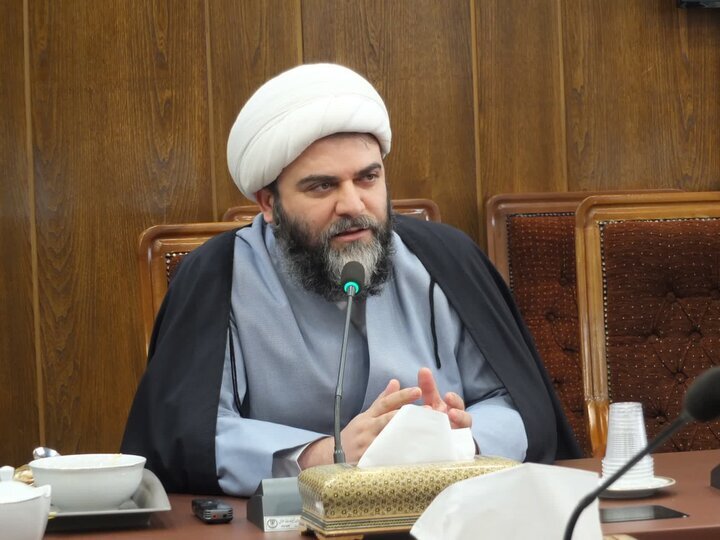Prominent Iranian cleric slams distortion of Quranic verses by ex-FM

TEHRAN – A leading Iranian cleric and head of the Islamic Development Organization has strongly criticized former Iranian Foreign Minister Mohammad Javad Zarif for misrepresenting verses of the Holy Quran in a recent TV appearance.
On Tuesday, Zarif showed up to a televised roundtable as an advisor to Presidential candidate Masoud Pezeshkian. When pressed about Washington’s withdrawal from the Joint Comprehensive Plan of Action (JCPOA) the former top diplomat who signed the failed pact in 2015 referred to specific verses from Surah Al-Anfal to argue that Tehran should try to turn a blind eye to Washington’s violations of its commitments.
Quran’s verse 8:56 is an opening to a series of verses that speak on parties violating their pacts with Prophet Muhammad (PBU). The succeeding verses say the Prophet must “terminate” his treaties with violators, “encounter them in battle” and face them off with “cavalry.”
During his appearance on TV, Zarif skipped the next five verses and cited 8:61 which tells the Prophet to “make peace” with enemies if they are “inclined” towards peace.
Islamic scholars have pointed out that Zarif’s second mentioned verse is irrelevant to the first one.
The former foreign minister’s seemingly deliberate distortion of the Holy Quran was met with a strong rebuke from Hujjat al-Islam Mohammad Qomi, head of the Islamic Development Organization (IDO).
“The interpretation that has been presented is peculiar, indecent, and inaccurate. We never anticipated such a rapid distortion of the Quran. To rationalize your errors, you have resorted to distorting and misrepresenting the Quran. We hope that individuals like Mr. Pezeshkian will refer to specialists, as he typically prefers to do. Therefore, in light of this incorrect interpretation of the Quran, it is important to seek guidance from Quranic experts. If you believe that interpretation is unnecessary, then at the very least, ensure that you accurately read the translated text of the Quranic verses!” said Hujjat al-Islam Qomi in a video address.
The JCPOA signed by Iran, the U.S., Britain, France, Germany, China, and Russia, limited Iran’s nuclear program in exchange for the termination of sanctions. The deal fell apart when in 2018, Washington announced its withdrawal and re-imposed heavy sanctions against Iran. European signatories to the JCPOA have also stopped all trade with Iran despite not officially leaving the pact.
Zarif has been criticized for compromising on Iran’s nuclear capabilities without receiving reliable guarantees from the West. Despite Western states’ complete and utter shunning of their commitments, the former top diplomat believes Iran should revive the JCPOA in its initial form without pushing too much for guarantors.
Zarif has thrown his support behind Pezeshkian for the June 28 presidential elections.
